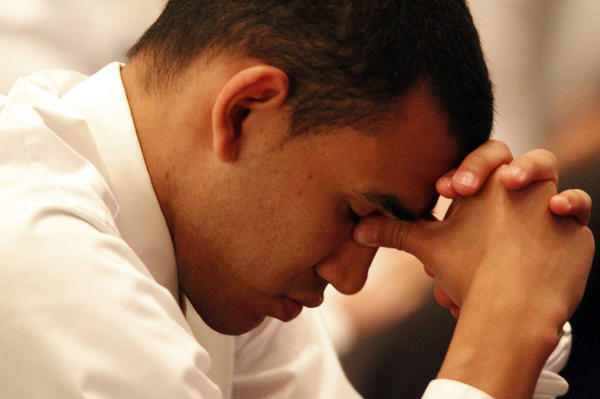Question
Gramps,
I have read many questions and comments in various forums including lds.org, and have yet to find someone else having the same thought about fasting that I have. Is the idea of refraining from fasting all together or partial abstaining, because of medical reasoning, simply a lack of faith? We are dealing with an omnipotent being that could easily take care of us during our fast time are we not? Thank you for your time!
Jay
Answer
Hi Jay,
At the most recent General Conference, President Eyring called the fast “a commandment with a wonderful promise for those in need and for us.” Nevertheless, fasting does not seem to be a well-understood principle among the Saints. This is partly a result of the times we live in. Our bodies were designed to endure periods of little or no food, and even go entirely without food for a few days at a time. Yet many people in our society today have literally never gone 24 hours without food, and the large majority really have no idea what it’s like to be truly hungry. We live in an amazing and blessed time in history, yet those blessings make us insensitive to what we have.
President Wilford Woodruff famously, or infamously, said:
It was remarked this morning that some people said they could not fast because it made their head ache. Well, I can fast, and so can any other man; and if it makes my head ache by keeping the commandments of God, let it ache.
Though this quote is fairly well-known among the Saints (most think it was Brigham Young who said it), many don’t realize that the “headache” part of fasting is generally not a permanent feature of the fast. When we begin fasting, we might get a headache the first two or three, or maybe ten or twelve, times we fast. Eventually, our bodies adjust to the lower blood sugar and other biological differences a fast makes, and we are fine. Fasting always demands some small price, even if it’s only a bit of weakness from not eating for a day. But that’s as it should be; fasting is supposed to be a sacrifice, the idea being that we give up something good (a day’s worth of food) for something much better.
But what of those of delicate health, for whom fasting would be a potential threat to their very lives? I quoted President Woodruff above. The very next sentence he spoke after those quoted above were:
There may be some people whose health is so delicate and fragile that they would be harmed by fasting for twenty-four hours. Such people are very, very rare; for the vast majority of us, our overall health could only improve by avoiding food for a day. I believe if the Saints, and indeed anyone else, fasted once a month, they would see real health benefits.
Of course, you and I can apply this to ourselves, and perhaps to some extent in our families. But it is rarely our place to tell others what their individual actions must be. My answer is designed to be a general overview, not a criticism of those who are afraid to fast.
The blessings of the fast are real, and they are powerful, and they are numerous. But they come only to those who fast. Those few who truly cannot fast are not condemned for it, though of course they miss the blessings of fasting. But the rest of us ought to examine ourselves very carefully before declaring ourselves unfit to fast. We stand to miss out on some great and profound blessings because we refuse to obey the law of the fast on which they are predicated.
The Book of Mormon teaches of four sons of king Mosiah, who had been very wicked men but who repented and became men of outstanding faith and power, saying (Alma 17:3):
“They had given themselves to much prayer, and fasting; therefore they had the spirit of prophecy and the spirit of revelation, and when they taught, they taught with power and authority of God.”
Do we want the spirit of revelation and of prophecy? When we teach our children or fellow Saints or neighbors, or any other situation where we need to teach gospel truths, do we want to teach with power and authority of God? If so, the way is clear: We must do as the sons of Mosiah did, and give ourselves “to much prayer, and fasting”.
Many Saints seem not to have incorporated these powerful lessons in their lives. The Fast Sunday fast is often skipped over completely, or is done perhaps by skipping Sunday morning breakfast. But if we want the blessings promised, we need to be willing to follow the law upon which those blessings are predicated. This is a simple example of the law of sacrifice: We give up something we value to get something we will value more.
I began this answer by referring to President Eyring’s General Conference address. Please read that talk carefully, and use it as a springboard to your study on this topic. And fast! It will do you good if you learn to be powerful in fasting.
Gramps






